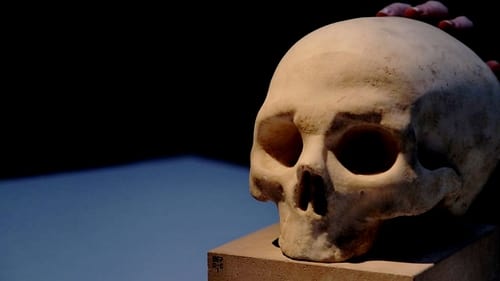
Camera Operator
The 1916 Battle of the Somme remains the most famous battle of World War I, remembered for its bloodshed and its limited territorial gains. What is often overlooked, however, is the literary importance of the Somme: more writers and poets fought in it than in any other battle in history. Narrated by Michael Sheen, War of Words: Soldier-Poets of the Somme details the experiences of the poets and writers who served in the battle. The work of Siegfried Sassoon, Robert Graves, David Jones, Isaac Rosenberg and JRR Tolkien (who arrived at the Western Front with ambitions to be a poet) was informed and transformed by the battle. Taken together, their experiences allow us to see this dreadful historical event through multiple points of view. The film uses animation, documentary accounts, surviving artefacts, battalion war diaries and the landscape itself to reconnect this literature to the events that inspired it.

Director of Photography
What is true and what is false in the hideous stories spread about the controversial figure of the Roman emperor Gaius Julius Caesar Augustus Germanicus (12-41), nicknamed Caligula? Professor Mary Beard explains what is accurate and what is mythical in the historical accounts that portray him as an unbalanced despot. Was he a sadistic tyrant, as Roman historians have told, or perhaps the truth about him was manipulated because of political interests?

Director of Photography
Dramatisation of the 2011 London riots, focusing pre-dominantly on events that occured in and around Clapham and incorporating actual footage from CCTV cameras, civilians and journalists

Director of Photography
In the summer of 1931, with Germany on the brink of economic collapse, and the city of Berlin turning into a paramilitary war-zone, audacious young prosecutor Hans Litten (Stoppard) chose to summon a star witness to a trial of Nazi thugs. In spite of the risk to his own safety and against the advice of those who love him, Litten forced rising political star Adolf Hitler (Hart) to make a sensational appearance in the witness stand of Berlin's central criminal court. Litten aimed to expose the true character of Hitler and his politics to the German public, to reveal his hypocrisy and his violent ambitions, and in doing so, halt the electoral success of the Nazi Party. In a humiliating and hostile cross-examination, Hitler was forced to account for his political beliefs, his contempt for the law and his desire to destroy German democracy. For a brief moment, Hitler's political future was genuinely in the balance.

Director of Photography
Descubra como a vida pessoal de Mary Shelley influiu em sua obra mais famosa. Quase 200 anos depois que Frankenstein fora publicado, ainda estamos fascinados e tememos os alcances que tem a ciência nos mistérios da vida.

Camera Operator
European philosophers: Friedrich Nietzsche, Martin Heidegger and Jean-Paul Sartre. The theme revolves heavily around the school of philosophical thought known as Existentialism, although the term had not been coined at the time of Nietzsche's writing and Heidegger declaimed the label. The documentary is named after the 1878 book written by Nietzsche, titled Human, All Too Human: A Book for Free Spirits.





